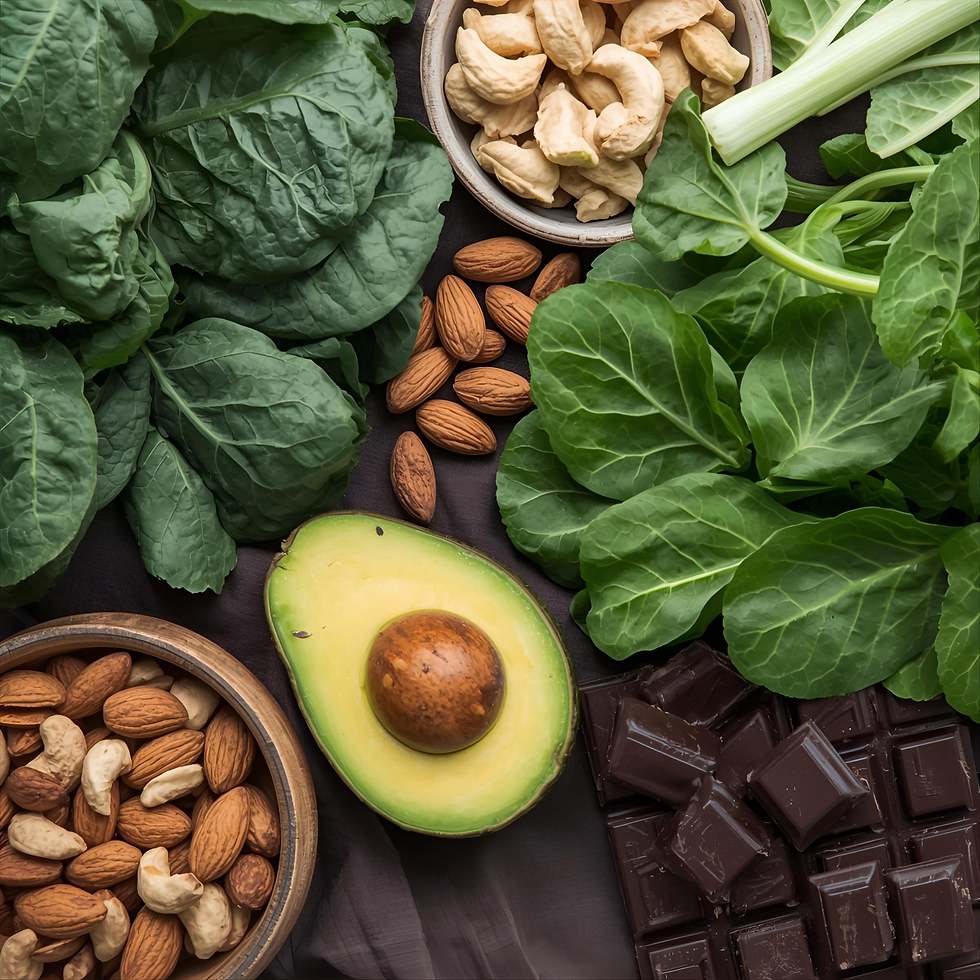Nourish Your Gut: A Guide to Probiotic and Gut-Friendly Foods
- Emma Hammond

- May 23
- 3 min read
In recent years, there’s been a growing awareness around the importance of gut health—and for good reason. A healthy gut doesn’t just support digestion; it also plays a key role in immunity, mood, and overall wellbeing. One of the most effective ways to care for your gut is by incorporating probiotic-rich and gut-friendly foods into your diet.

What Are Probiotics?
Probiotics are live microorganisms, mainly bacteria and yeasts, that provide health benefits when consumed in adequate amounts. Think of them as the "good" bacteria that help keep your digestive system balanced. Our gut naturally contains billions of bacteria, both good and bad, and maintaining the right balance is essential for optimal health.
These beneficial microbes help:
Support digestion and nutrient absorption
Strengthen the immune system
Prevent the overgrowth of harmful bacteria
Produce certain vitamins, like vitamin B12 and K
Support mental health via the gut-brain axis
An imbalance in gut bacteria—often caused by stress, illness, poor diet, or antibiotics—can lead to issues such as bloating, fatigue, skin problems, and even mood disturbances. This is where probiotics come in, helping to restore harmony in the gut.
What Foods Contain Probiotics?
Fortunately, you don’t need to rely solely on supplements to get your daily dose of probiotics. There are many delicious, natural sources of probiotics you can include in your diet:
1. Yoghurt
One of the most accessible probiotic foods, yoghurt contains live cultures such as Lactobacillus and Bifidobacterium. Look for labels that say “live and active cultures” to ensure you’re getting the real benefits.
2. Kefir
This fermented milk drink is similar to yoghurt but thinner in consistency and often higher in probiotic strains. It’s tangy, refreshing, and can easily be added to smoothies or enjoyed on its own.
3. Sauerkraut
Fermented cabbage may sound simple, but sauerkraut is packed with beneficial bacteria. Just make sure to choose unpasteurised varieties from the chilled section, as pasteurisation kills off the live cultures.
4. Kimchi
This spicy Korean side dish, made from fermented vegetables and seasonings, offers both probiotics and prebiotics (fibre that feeds good bacteria). It adds a bold kick to rice bowls, noodles or even sandwiches.
5. Miso
A traditional Japanese seasoning made from fermented soybeans, miso adds depth to soups, marinades, and dressings while supporting gut health.
6. Tempeh
Also made from fermented soybeans, tempeh is a firm, nutty product often used as a plant-based protein. It’s a great addition to stir-fries and salads.
7. Kombucha
This fizzy, fermented tea is popular for its tangy flavour and probiotic content. Available in many flavours, kombucha makes a great alternative to sugary soft drinks.
Other Gut-Friendly Foods to Consider
While probiotics are important, it’s equally vital to feed these good bacteria with prebiotics—non-digestible fibres that help them thrive. Good sources include:
Bananas
Oats
Garlic
Onions
Leeks
Asparagus
Chicory root
Blueberries
Combining both probiotics and prebiotics in your diet supports a balanced gut microbiome, often referred to as "symbiotic" nutrition.
Final Thoughts
Caring for your gut is one of the most beneficial things you can do for your health. By incorporating a variety of probiotic-rich and gut-friendly foods into your daily routine, you’re not just improving digestion—you’re supporting your whole body, from immunity to mental clarity.
Start with small changes. Maybe it’s adding a dollop of yoghurt to your breakfast, or swapping a sugary snack for a handful of fermented veggies. Your gut—and your body—will thank you.
Gul S, Durante-Mangoni E. Unraveling the Puzzle: Health Benefits of Probiotics-A Comprehensive Review. J Clin Med. 2024 Mar 1;13(5):1436. doi: 10.3390/jcm13051436. PMID: 38592298; PMCID: PMC10935031.



